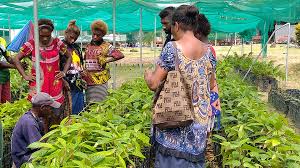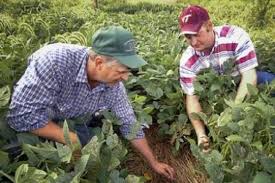The last article discussed the principles of agricultural extension. In this article, four more principles of agricultural extension will be discussed. This article promises to be insightful, as it further strengthens the personal characteristics required for effective extension work. After studying this article, certain objectives will be met.
Read Also: 7 Medicinal Health Benefits of Tongkat Ali (Eurycoma Longifolia)
1. Principle of Mutual Trust and Respect in Agricultural Extension

In human relationships, mutual trust and respect are critical. Two people who are not friendly cannot work together, and in situations where there is no respect, there cannot be harmony and peaceful coexistence. Similarly, in extension work, the clientele and the extension agent should respect and trust each other.
The extension agent has the responsibility of giving respect to the farmers by acknowledging their level of understanding. Farmers are knowledgeable, as they have been successfully carrying out farming activities over the years to the best of their ability.
They should not be viewed as people without intelligence. Although they may not be aware of modern farming practices, this does not mean that if they have the opportunity to learn, they would not utilize such practices. Farmers should be respected for their knowledge.
It is important for extension personnel to understand how they have been coping with their unique challenges over the years, and they should be respected for this.
On the other hand, the extension agent should also be credible in the presence of the farmers. This means keeping promises and not getting involved in activities outside the main functions of the job. For example, the agent should not engage in selling inputs such as fertilizers and agrochemicals to the farmers.
The extension agent should exhibit a high level of competence in the work. Farmers expect a lot from the extension agent, who should develop the necessary skills to meet the farmers’ needs. However, when the extension agent cannot handle certain issues, honesty is key, and the agent should consult with a subject matter specialist.
2. Principle of Voluntary Involvement in Agricultural Extension

Extension is a process that involves changing human behavior through communication. It is impossible to change the behavior of an unwilling individual. Extension can only make an impact when the clientele is willing and accepts what is being introduced.
Coercion does not help in project implementation and sustainability, so extension should be based on the voluntary involvement of the clientele.
A participatory approach is encouraged, so that both the clientele and the extension agent have a common goal and work toward achieving the stated objectives.
Extension should provide maximum opportunities for people to work on programs determined by both the clientele and the extension agents. If the clientele are not involved in the planning or in identifying their needs, they may lose interest in such programs.
Read Also: The Origin and Development of Soil (Soil Genesis)
3. Principle of Working with the Whole Family in Agricultural Extension

In African communities, agricultural production often involves the whole family. Family members contribute by providing farm labor for cultivation, as well as in processing, transportation, and marketing. This involvement influences the adoption or rejection of new technologies.
Extension services should work with all members of the family men, women, young, old, rich, and poor. The family should be viewed as a working unit, both at home and in the field. Extension work should be conducted without regard to religious, racial, or political beliefs.
When working with rural people, they should be treated as rational individuals capable of making their own decisions. Extension personnel should address the related problems faced by different groups within the family.
The involvement of the whole family can help in the acceptance of the extension message. Family members are at different stages of life, with varying levels of education and economic status. These differences can expose them to various information sources, which increase their awareness.
For example, some literate members may have access to additional information sources like handbills, bulletins, or public announcements, which could help the family as a whole.
This article has introduced the principles of mutual trust and respect, voluntary involvement, and working with the whole family in agricultural extension. These principles are fundamental for successful extension work and help foster better relationships between extension agents and farmers.
Do you have any questions, suggestions, or contributions? If so, please feel free to use the comment box below to share your thoughts. We also encourage you to kindly share this information with others who might benefit from it. Since we can’t reach everyone at once, we truly appreciate your help in spreading the word. Thank you so much for your support and for sharing!

